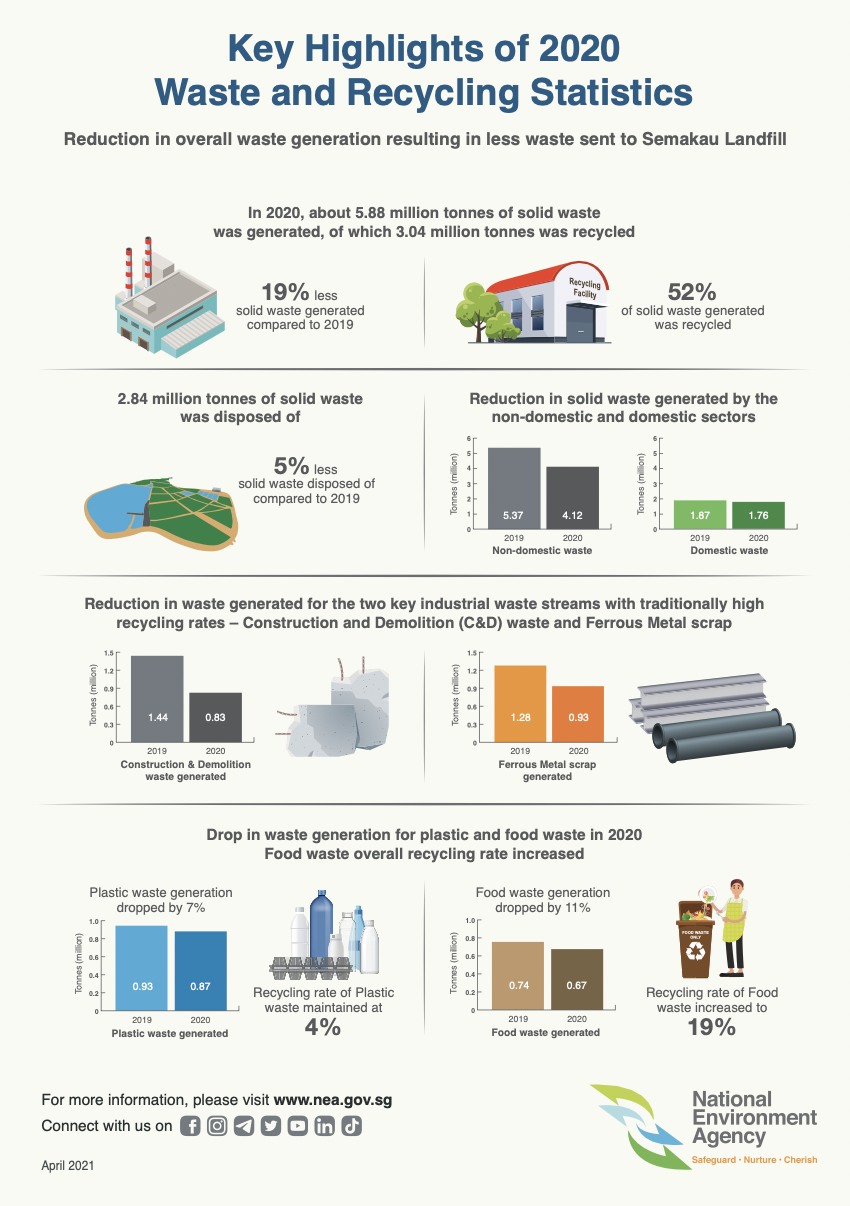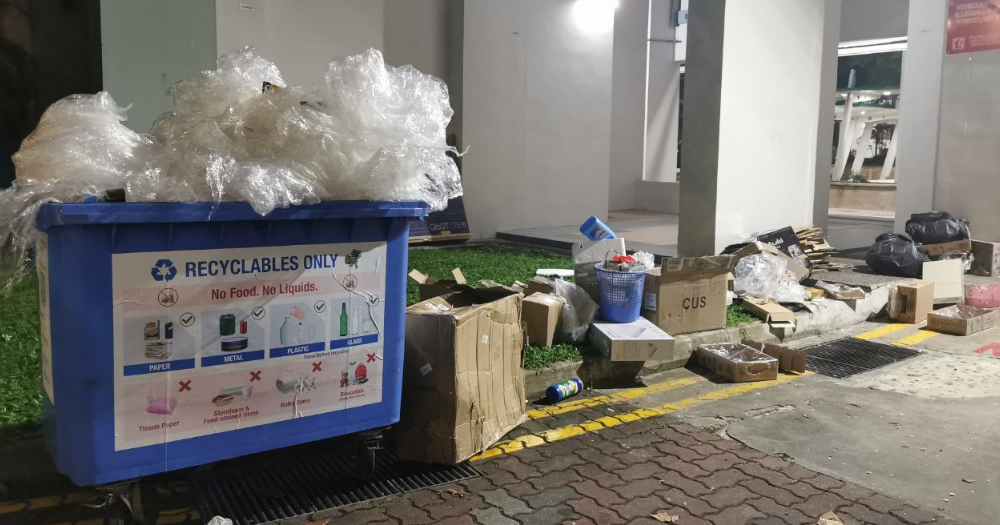Follow us on Telegram for the latest updates: https://t.me/mothershipsg
The National Environment Agency (NEA) announced on Apr. 23 that there was a drop in Singapore's overall recycling rate in 2020, largely due to the impact of Covid-19.
Additionally, the pandemic had led to a 19 per cent drop in the overall waste – recycled and disposed – generated in 2020. Overall, there has been a decline in waste generation in Singapore over the past four years, NEA said. About 5.88 million tonnes of solid waste was generated in 2020.
Despite a further drop in waste generated, recyclables collection in 2020 was hindered by the pandemic.
Fall in recycling rate in 2020 due to Covid-19 impact
According to NEA, the overall recycling rate fell by seven per cent, from 59 per cent in 2019 to 52 per cent in 2020.
This is due to a substantial drop in two main source of waste from industrial and commercial premises (non-domestic) — construction and demolition waste and ferrous metals.
Waste from construction and demolition and ferrous metals usually accounts for 60 per cent of waste generated and waste recycled.
As the two waste streams contribute to large quantities of waste collected and have high recycling rate, the overall proportion of waste recycled is therefore affected.
Due to Covid-19, construction activities have been put to a stop during Circuit Breaker which resulted in the smaller amount of construction and demolition waste last year.
Similarly, there were "large falls" in the amount of waste generated and recycled for ferrous metals as industrial activities were affected by Covid-19 measures.
The rates of all other recyclable materials in non-domestic sector, with the exception of paper/cardboard, were comparable to, if not higher than, those of 2019.
Recycling rate in households and the community dropped
The domestic recycling rate also decreased from 17 per cent to 13 per cent.
This is because the collection of recyclables from households, schools and the community was put on hold due to Covid-19 measures and only resumed in the third quarter of 2020.
Programmes such as cash-for-trash scheme and collection drives led by school and Residents' Committee centres were also halted, resulting in less paper, plastic recyclables collected.
Due to Covid-19, NEA also found that more packaging waste was generated with more purchases made online and food delivery ordered.
Working towards zero-waste
Under the Singapore Green Plan 2030, Singapore aims to reduce the amount of waste sent to Semakau Landfill by 30 per cent in 2030. In addition to that, Singapore has also targetted to attain a 70 per cent overall recycling rate.
NEA said that environmental sustainability "remains important" and "will take a whole-of-nation effort to achieve Singapore’s vision of a Zero Waste Nation".
To do so, the agency will continue engaging Singaporean consumers and businesses through campaigns and waste reduction efforts.
"This is a long-term effort that requires all of us – from the people, private and public sector – to work together."
NEA also added that the waste generation and recycling patterns in 2020 are unlikely to repeat in 2021 as the impact of Covid-19 gradually eases.
 Image by National Environment Agency
Image by National Environment Agency
Related stories:
Top image by Zheng Zhangxin.
If you like what you read, follow us on Facebook, Instagram, Twitter and Telegram to get the latest updates.

